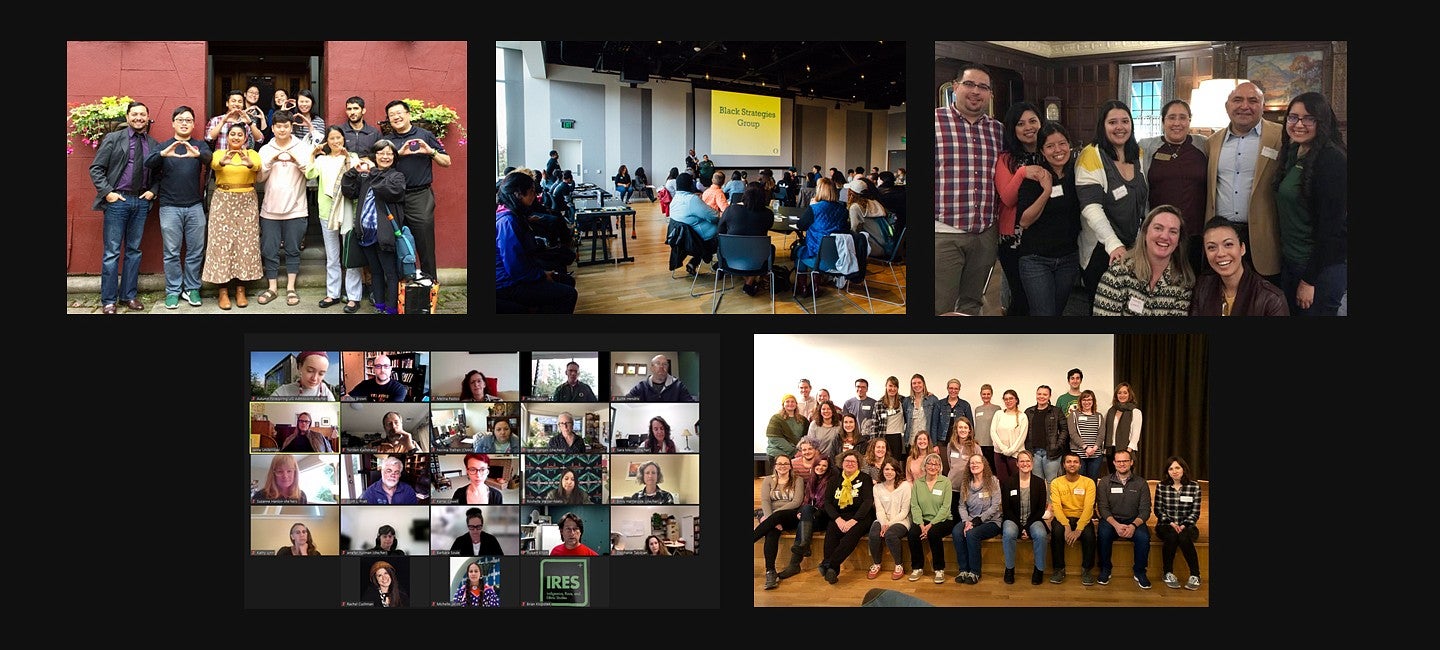
In-person group photos above and throughout the story below were taken prior to COVID-19.

The start of another academic year often brings opportunities for fresh ideas and new beginnings.
For the University of Oregon strategies groups, this year affirms that to be true. Even with the challenges that came with remote operations and COVID-19, members of these affinity groups have been working diligently to maintain and reconstruct the connections disrupted by the pandemic.
With demands for racial justice on the streets and calls for better diversity, equity, and inclusion in the workplace, the impact of strategies groups on campus has taken on a renewed meaning. Members of strategies groups have come together in solidarity over the past year to create a new sense of community, despite the challenges they faced during the pandemic. Strategies groups have also been at the forefront of a variety of new academic programs and student success initiatives, in addition to advocacy efforts for the sake of faculty recruitment and retention.
What is a strategies group?
Strategies groups are coalitions of faculty, staff, and students from various identities at the University of Oregon. The groups are open to people of all racial and ethnic backgrounds and dedicated to supporting Native, Black, Latino, Asian, Desi and Pacific Islander, and white identifying members of the university community. The Native American Strategies Group was the first to be established on campus and modelled an organizational structure that has allowed other groups to find success as well.
The strategies groups function autonomously, and membership is voluntary. These groups serve as dynamic spaces for community members to congregate and collaborate with each other. In setting their own goals and priorities, strategies groups strive to improve the UO experience by advocating for equity and inclusion in the campus community.
The Division of Equity and Inclusion (DEI) supports the strategies groups by providing modest financial and logistical assistance where needed. Group members and DEI staff work collaboratively on projects and opportunities that strengthen connections across campus and further the mission of the University of Oregon.
Strategies Groups at the University of Oregon
The University of Oregon is currently home to five strategies groups: Asian, Desi, and Pacific Islander Strategies Group, Black Strategies Group, Latinx Strategies Group, Native American Strategies Group, and the Deconstructing Whiteness Working Group.
Other identity-based groups can also be found on campus, such as the faculty senate-based Sexual, Orientation, Attraction, Gender, Identity and Expression (SOAGIE), the Religious Director’s Association (RDA), and many student clubs. These groups often collaborate with strategies groups on projects about shared issues and concerns.
Building Communities and Support Systems
The COVID-19 pandemic radically transformed the way each strategies group viewed and constructed their own community. Prior to this shift, meetings were facilitated in person and external gatherings lead to opportunities for personal and professional growth. Interactions with students in the Center for Multicultural Academic Excellence (CMAE) and Multicultural Center (MCC) generated positive and intimate support systems that furthered the mission of each group.
For many faculty, staff, and students of color, the pandemic brought into light longstanding systemic inequities that materialized in issues of accessibility and institutional support. However, opportunities for growth, compassion, and connection developed from these challenges in new and innovative ways.
Asian, Desi, and Pacific Islander (ADPI) Strategies Group
Members of the ADPI community faced unique challenges related to the spread of COVID-19 . “It’s been an interesting time as an ADPI identifying person in Eugene,” said Lynn Huynh, ADPI SG co-chair. “With COVD-19 originating from China, we saw a lot more aggressive, violent, etc. behavior towards people that looked a certain way.”
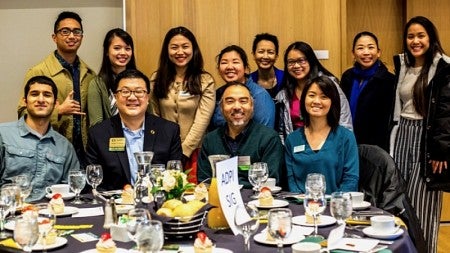
Despite these challenges, many members were able to find community and support through the strategies group. In April 2020, the ADPI SG released a statement denouncing recurring episodes of anti-Asian violence in response to COVID-19.
James Chang found the sense of camaraderie in the empathy shared in this community to be especially helpful during this challenging time.
"You have to give each other grace and at the same time learn that we deserve grace and space too," Chang says. "We have hopes and aspirations but we’re also only human, and there’s only so much time in the day. If we can connect on things that we care about and share and benefit from, that makes our whole experience better."
Black Strategies Group
Last year, one goal of the BSG was to organize around providing Black-specific HR resources for new employees and working with the Lyllye Reynolds-Parker Black Cultural Center to collect resources to help staff support Black students. Following the murders of George Floyd, Breonna Taylor, and Ahmaud Arbery, the BSG received support from the other strategies groups and saw increased engagement from UO leadership regarding racial justice.
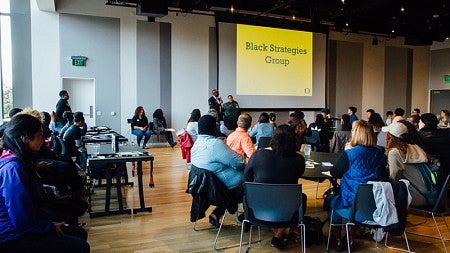
According to membership survey conducted in Summer 2020, however, many Black faculty and staff still regularly experience microaggressions, discrimination and the effects of systemic racism on campus and in the University of Oregon community. These survey responses also revealed a heightened dissatisfaction with the university’s lack of commitment to sustained and concrete diversity and inclusion efforts.
"The work we do around establishing community is intended to rejuvenate and sustain our Black faculty and staff," said Dean of Students Marcus Langford, a member of the Black Strategies group. "Within the context of a historically white institution, being a Black faculty or staff member can be draining for any number of reasons. It can be somewhat of an isolating experience, so the impact of our community building work is around helping our new faculty, staff, and students feel more welcome."
To combat these feelings of isolation and cultural taxation, the BSG has taken the initiative on outreach efforts with new hires. Identity-based strategies groups can be a key resource for faculty and staff retention, which is why the BSG wants to see participation in these communities supported by departments and supervisors.
LatinX Strategies Group
During the COVID-19 pandemic, many members of the LSG reflected on the challenges faced by Indigenous peoples 500 years ago when Spanish forces captured the Aztec city of Tenochtitlán. The work of the Latinx Strategies Group today is an extension of this history.
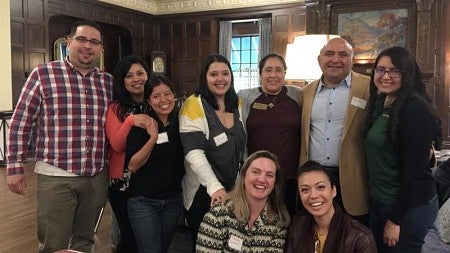
Without a doubt, the pandemic has disproportionately impacted students of color, non-traditional students, low-income students, and first-generation college students at the University of Oregon. Many students faced barriers to access and success in this setting as a Predominately White Institution (PWI), but continued to work through the pandemic, took on additional roles in their homes, and or had to deal with contracting COVID-19. LSG members see that without a doubt, preparing for the return of Latinx/Chicanx students to campus is a priority of high importance.
Despite the challenges of remote work and feelings of isolation, however, members of this strategies group found ways to strengthen community relationships in the face of adversity. Over the past year, the Latinx Strategies Group hosted virtual trivia events and had a few opportunities for socially distanced outdoor gatherings. These interactions helped strengthen feelings of home and belonging within the group.
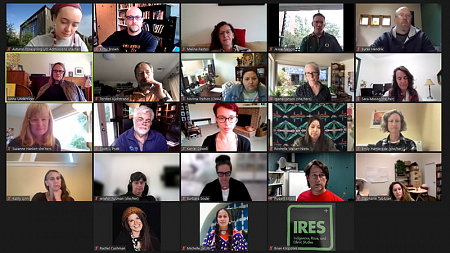
Native American Strategies Group
In building identity-based support systems at the University of Oregon, NASG is looking to expand and amplify the work their communities are doing on campus. Supporters of these efforts are encouraged to follow their lead in developing environments of empathy and resilience from the ground up.
As the campus community transitions back into in-person learning, the NASG will continue to advocate for consistent resources not only to keep existing programs in place, but to expand and amplify the work Native communities are doing inside and outside of the classroom. These grassroots efforts are intended to supplement the commitments of the university in supporting values of diversity, equity, inclusion, and excellence.
Members of NASG have also been successful advocates for a new Native American and Indigenous Studies major, in addition to the cluster hire of Native faculty who will bring new opportunities to support Native communities and for non-Native students to learn about Indigenous cultures.
Deconstructing Whiteness Working Group
In deconstructing whiteness in their personal and professional lives, members of the DWWG foster deep connection, growth, and a commitment to anti-racist action through book clubs and other programming.
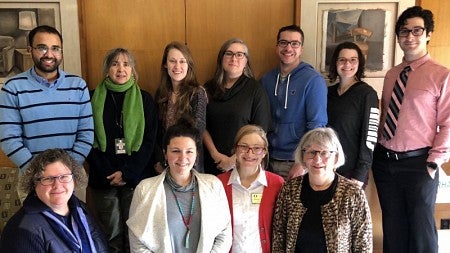
Hannah White, a member of DWWG, joined the group in 2019. Her experience in this network has encouraged her to take initiative in combatting racism in her own life.
"With deconstructing whiteness, I think that it doesn’t always seem like the most direct form of anti-racism work," White said. "But because there is so much harm caused by white folks, myself included, it is something more indirect but still really critical work to engage in."
Bridging Connections Across Networks
Given the renewed discourse around racial justice in the past year, more people have been moved to action and are interested in finding ways to support communities at the university. Strategies and working groups welcome individuals from all backgrounds to attend meetings and contribute what they can to the mission of the group.
Ruth Huang, a program associate Campus and Community Engagement in the Division of Equity and Inclusion, works with the strategies groups in their collaborative efforts.
“For these strategies groups, I think it’s always a collaboration,” Huang said. “DEI doesn’t direct the groups. We want them to have autonomy and really identify what their priorities and directions are based on the needs that they’re seeing in our campus community.”
With the return to in-person events, the groups are looking for more ways to build community broadly across campus.
“We invited all the members of strategies groups to a gathering at the Wayne Morse Family Farm in an effort to bring everyone together and meet each other and build relationships,” Huang said. “That was a big success and those are the types of community building events that we want to create opportunities for.”
Huang will continue working closely with the groups to assist with collaboration between the groups and to support the missions of the individual strategies groups.
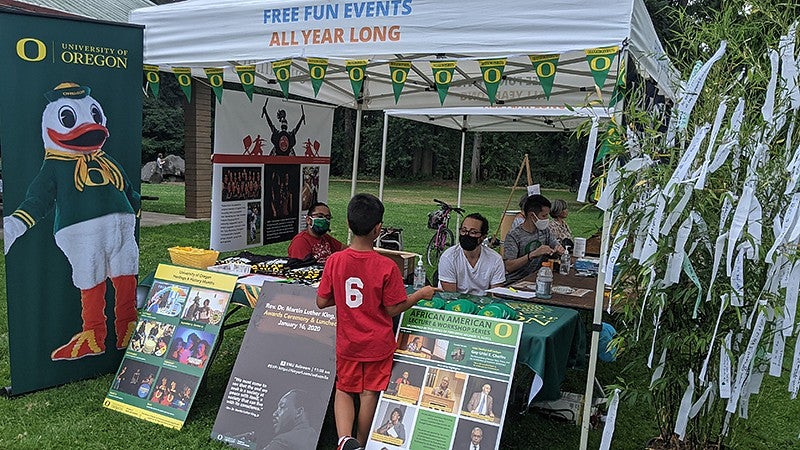
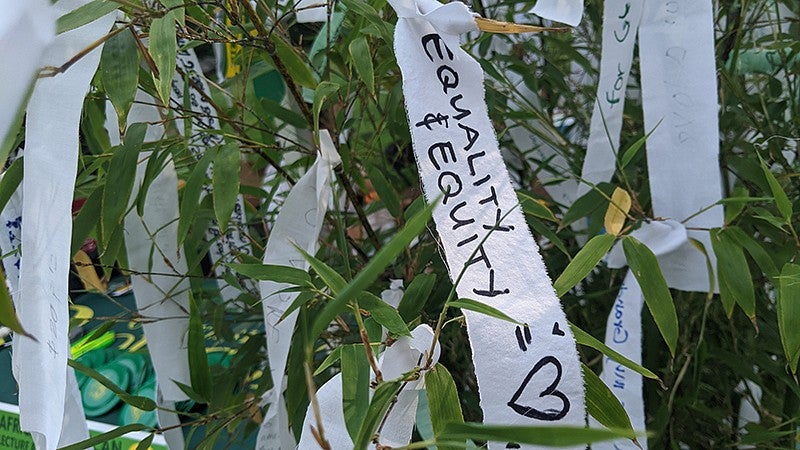
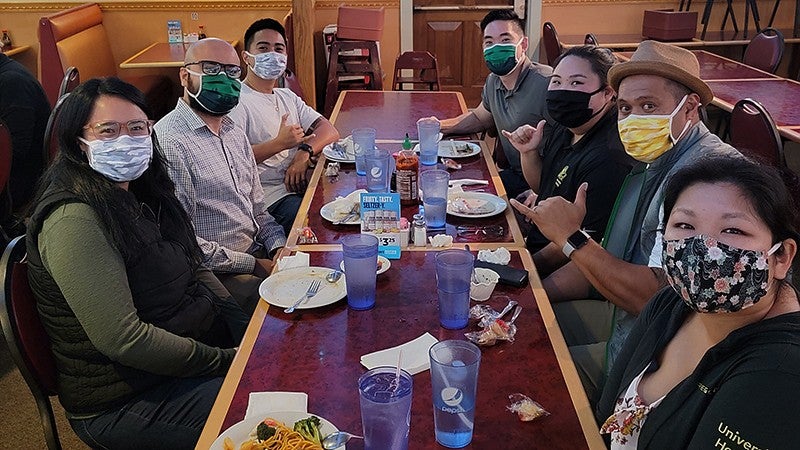
Getting Involved
As the university transitions back into in-person activities, strategies groups will continue to facilitate community meetings and social events in support of their community missions. Many members of strategies groups are looking forward to what opportunities the new year will bring.
Strategies groups have resumed their regular meetings this fall. Students, faculty, staff, and community members interested in joining and supporting the strategies groups are encouraged to contact the groups directly for more information about getting involved in a strategy group.
